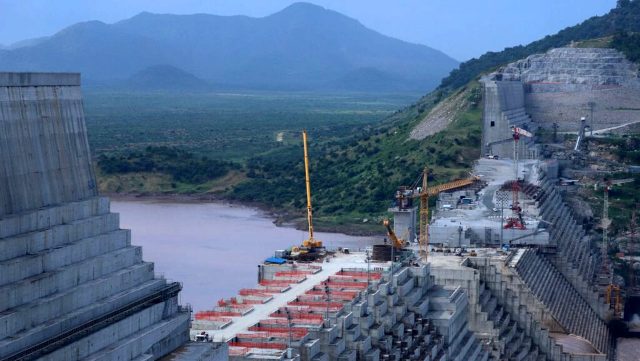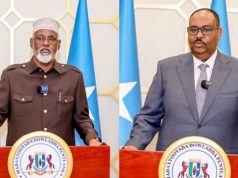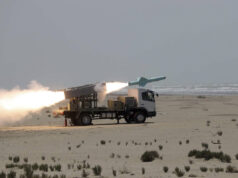
The US may soon take sides in a potential water war over the Nile River. The $4.5 billion Grand Ethiopian Renaissance Dam (GERD) is reaching the mature stage of construction, with Ethiopia announcing its intent to begin storing water that Egypt would prefer to grow its crops with. Should combat ensue, Washington will likely choose between two of its oldest and more problematic proxies: Egypt and Ethiopia—with oft-embattled Sudan caught in the middle.
President Trump’s options include his “favorite dictator,” Egyptian President Abdel Fattah el-Sisi, and Ethiopia’s young modernising Nobel Prize-winning prime minister Abiy Ahmed. Sisi’s Egypt has long been America’s number two recipient of military aid and ostensible ally in the fight against regional “terror.” Abiy leads a self-styled Ethiopian rising power—with Africa’s fastest-growing economy—that Washington views as a pivotal partner in the strategic Horn of Africa. Neither state has a stellar human rights record or reputation for regional harmony.
The Nile is the world’s longest river and flows 4,000 miles through 11 countries, and its terminus in Egypt has helped propagate one of the largest population centres on the African continent for thousands of years.
The Nile fulfils 97 per cent of Egypt’s water needs, and 95 per cent of Egyptians live along the river or within its delta, but the struggle transcends resources. There was much truth in President Sisi’s dramatic proclamation at the United Nations in September 2019: “The Nile is a question of life, a matter of existence to Egypt.”
Ethiopia, on the other hand, rejects Egyptian intransigence as “hydro-hegemony” and asserts a national right to dam the Nile and thus “light up” its swelling population. Indeed, Ethiopia’s 6.4-GW GERD could more than double power capacity in a country where 60 per cent of the people still lack electricity. This, plus the predicted largesse from energy sales to neighbouring countries, would thereby fuel Addis Ababa’s ongoing modernisation project and allow Ethiopia to take its destined place as a regional powerhouse. That the young energetic Prime Minister Abiy—with his big promises—faces an election in August adds a political calculus to the treacherous dispute.
Ultimately, climate-induced desertification and drought, combined with overpopulation—more than 100 million and counting in both countries—could override the human drama and become the most pressing threat. The Nile River dispute highlights humanity’s dilemma in microcosm: the crisis demands fresh transnational unity, but old geo- (and hydro-) politics continue to predominate.








